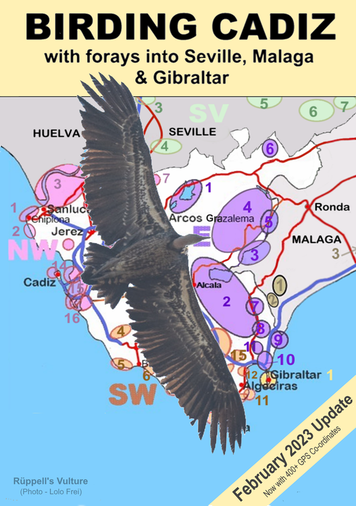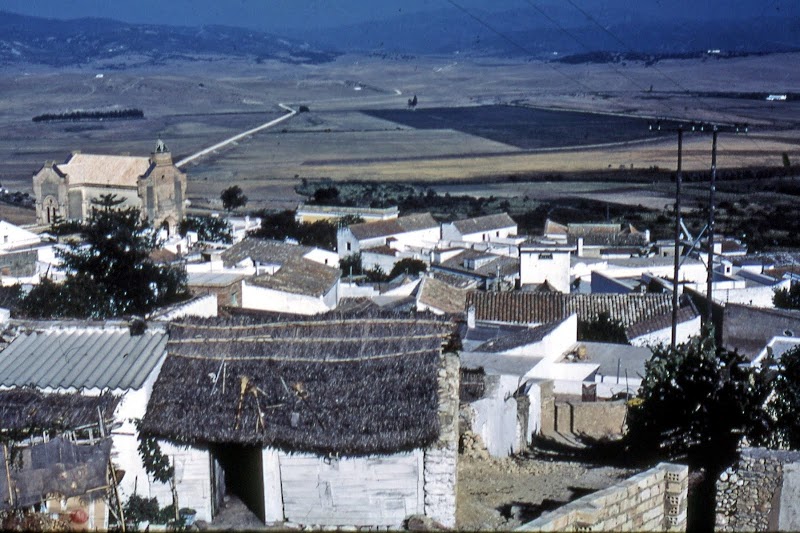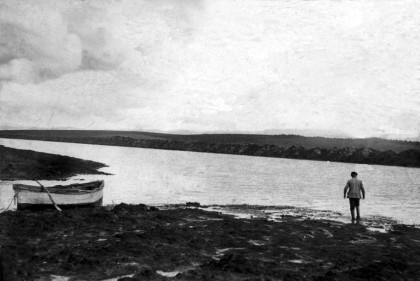MORE THAN 6,000 HECTARES OF PUBLIC DOMAIN KEEP USURPED BY LARGE COMPANIES
A report by the High Court of Spain supports the statements of the conservation organizations fighting for the recovery of La Janda, formerly the largest lagoon of Spain

THE SPANISH GOVERNMENT ACKNOWLEDGES THE EXISTENCE OF OCCUPIED PUBLIC DOMAIN AND THE INEXISTANCE OF VALID CONCESSION TITLES
After years of vindication, research and administrative procedures carried out by the Laguna de la Janda Friends Association, with the support of Ecologistas en Acción, Greenpeace, SEO / Birdlife, AEMS-Ríos con Vida, Fundación Savia o Red Andaluza de Nueva Cultura del Agua, the Spanish Government, in light of the evidence provided by the abovementioned groups, initiated in 2018 a file of “Investigation and Recovery ex officio of the Public Domain”. This way, the Dirección General de Patrimonio del Estado (General Directorate of State Heritage) required the Dirección General del Agua del Ministerio para la Transición Ecológica y el Reto Demográfico (“General Directorate of Water of the Ministry for the Ecological Transition and the Demographic Challenge”) a report in order to clarify the ownership of the land of the former lagoon.
THE REPORT, published on 21t of January 2021 by the State Attorney, concludes that La Janda holds an extension of 6.165 Ha demarcated as public domain. These lands would not have lost their qualification as public domain assets “because even if they are transformed, even if they become denatured (as has happened) they will continue to maintain that qualification”. Besides, even if in 1964 a Decree was issued to retrieve the former concessions, subsequent actions by the Administrations have resulted in «those lands in the public domain being now occupied by private farms».
ECOLOGICAL DISASTER AND SOCIAL INJUSTICE
La Janda was, until its desiccation in the 60s of the 20th century, among the most relevant wetlands in Europe. This was due to its strategic location on the edge of the Strait of Gibraltar, a major flyway for migratory birds.
At the time, the drainage and cultivation of this wetlands contributed to lift part of the local population out of extreme poverty. However, at the same time, it also represented a major loss of biodiversity in our country.
Next, a tremendous social injustice took place. The Francoist State allowed the large owners «friends of the regime» to keep occupying, indefinitely and for free, the public domain. It is important to highlight here that even if these landowners had previously been legally endorsed to own the land, they were afterwards paid a compensation to leave it. This way, in 1964 the Government retrieved the ownership of the land itself. Indeed, the intention was to transfer the land to the National Institute of Colonization and, subsequently, grant it to small landowners. However, this allocation of the land did never happen. As a result, the usurpation of public property by the large landowners is currently maintained, with the connivance of successive governments and different public administrations.
Today, the occupied land is used for intensive agricultural practises that report huge benefits to a few large companies. Moreover, these landowners receive a large amount of subsidies from the Common Agricultural Policy (CAP) of the European Union. Indeed, the company that nowadays occupies the largest extent of public domain, Complejo Agrícola SL, is by far the one that receives the highest amount of these EU subsidies in Spain: more than two million euros in 2019 [1].
Remarkably, this profitable business, based on the undue exploitation of public land, does hardly provide any social profitability to the region. Indeed, the agriculture relies on highly mechanized farms with insignificant need of manpower. Moreover, the benefits and taxes generated do not have a significant local impact as, to a large extent, these companies base their headquarters outside the province.
THE EU’S ECOLOGICAL RECOVERY AND TRANSITION POLICIES: A UNIQUE OPPORTUNITY TO RECOVER THE LAGUNA DE LA JANDA
The new policies of the European Union and the Spanish Government leading to the transition towards more resilient and adaptive systems, offer the opportunity to activate the economy under the approach of the «Green Deal». This includes mitigation and adaptation to climate change, development of the circular economy and conservation of biodiversity and ecosystem services.
Taking advantage of this situation, and once the public ownership of the land has been accredited, we consider that the State, the Andalusian Government and the different Townhalls of La Janda area should be fully committed with the ecological restauration of the former lagoon. We believe that the so-called EU “Next Generation” funds represent a unique opportunity to make this project of international relevance a reality.
The Lagoon of La Janda has been relegated to oblivion for over half century now. Its restoration would provide unique ecosystem services for the European continent. Moreover, it would contribute in a relevant way to the ecological transition of this region of Cadiz towards a more sustainable model of society.

[1]https://elpais.com/economia/2021-02-22/los-senores-del-campo-asi-se-reparten-las-ayudas-europeas-entre-los-que-mas-reciben.html





 Andalucia Bird Society
Andalucia Bird Society Arte Sureño
Arte Sureño Birdcadiz
Birdcadiz Birding Cadiz Province
Birding Cadiz Province Birding Tarifa
Birding Tarifa Birding the Strait
Birding the Strait Desde la Historia de Casas Viejas
Desde la Historia de Casas Viejas En Ausencia de la Janda
En Ausencia de la Janda GONHS
GONHS Guía de Aves del Estrecho
Guía de Aves del Estrecho Sociedad Gaditana de Historia Natural
Sociedad Gaditana de Historia Natural Vida Silvestre Ibérica
Vida Silvestre Ibérica
Debe estar conectado para enviar un comentario.